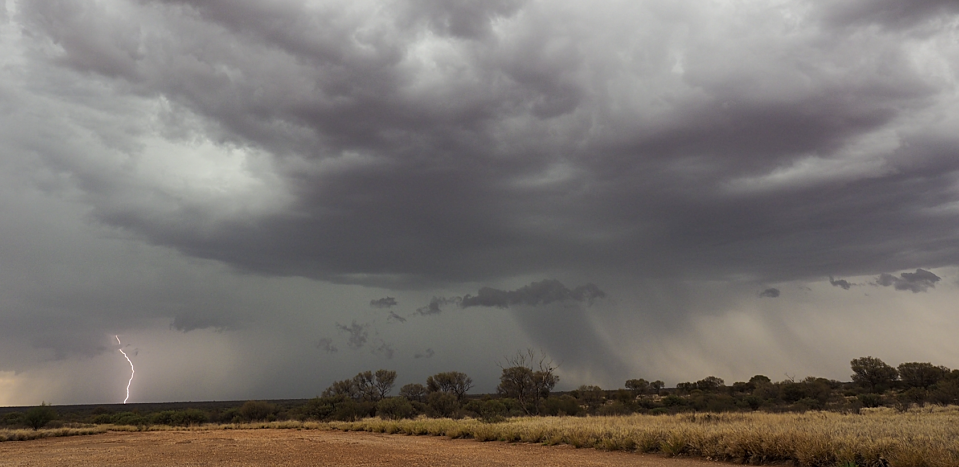
One Nation’s chances as a dominant conservative party are piñata-like
Posted on 11 Feb 2026
Opinions polls insist Pauline Hanson's fortunes are on the rise, but it is likely that enthusiasm…
Posted on 21 Aug 2024
By David Crosbie

If we want politics to be more than the art of messaging, we need to play our role in holding governments to account.
This is especially true in the post-truth era where any fact can be questioned, and people tend to believe what they need to believe to justify their own ideas about politics and life.

The danger with the messaging and attention-grabbing view of politics is that at its extreme there are no real measures of success, and there is very limited accountability. A politician can claim anything and then challenge any assertion that they are wrong or haven’t delivered what they claim – often by personally attacking anyone who criticises their policy.
In most of the public discourse about governments and policy, there is very little, if any, attempt to answer serious questions about policy outcomes and evidence of change. Factual policy analysis doesn’t fit into a media model dominated by superficial hyper-partisan debates focused on political point-scoring and short-term attention grabs. How outrageous.
Policies for charities and not-for-profits might be less controversial, but in some ways that makes it even more important that we do ask the policy outcome questions. What is the evidence that policies can deliver or have delivered real change for our sector? Do the words and policy intent of politicians and government officials match what is being delivered?
At the Community Council for Australia (CCA), we know it’s important to hold every government to account for delivering real outcomes for our sector. We need to see evidence of change beyond the encouraging words and offers of support.
There’s no doubt that in some areas the Albanese government and the Assistant Minister for Charities, Dr Andrew Leigh, have delivered positive changes for our sector over the last term of government.
We want all political parties to know that if they make a policy commitment to our sector, we will be watching and monitoring the implementation. If we aren’t prepared to hold governments and political parties to account, we can’t expect our sector will be prioritised or taken seriously.
There is also no doubt that some of what the incoming Albanese government said it would do for charities and community organisations has not been delivered, or has only partly been followed through.
Over the next couple of weeks CCA will seek informed views from across our sector about what areas of charities and community organisations policy have been advanced, and what have languished.
Our starting point in this endeavour is to seek your views about the implementation of the ALP’s pre-election platform for charities and community organisations.
This is what was promised:
The supporting ALP pre-election media release also talked about establishing a “‘Building Community – Building Capacity’ Working Group to bring new resources to the problem, publicise successful programs and demonstrate the social and economic value of better-connected communities.”
Tempted as I am to make my own observations about how the government has performed in implementing these policies, it will be much more useful, powerful and informative to have people from across our sector anonymously express their own views about the government’s performance measured against its pre-election commitments.
We want all political parties to know that if they make a policy commitment to our sector, we will be watching and monitoring the implementation. If we aren’t prepared to hold governments and political parties to account, we can’t expect our sector will be prioritised or taken seriously.
We hope you will join us in this endeavour by participating in a survey of sector leaders and experts to evaluate government progress on reform for our sector.
To participate, please email Deborah Smith, partnerships manager at the Community Council for Australia, at deborahs@communitycouncil.com.au and mention the survey.

Posted on 11 Feb 2026
Opinions polls insist Pauline Hanson's fortunes are on the rise, but it is likely that enthusiasm…

Posted on 04 Feb 2026
As we move into 2026, I can’t help but think the world is wobbling a little.

Posted on 28 Jan 2026
The 2026 Australia Day Honours list delivered a sobering reality check. After reaching gender…

Posted on 28 Jan 2026
This year’s Adelaide Writers’ Week began with the cancellation of a talk by Palestinian-Australian…

Posted on 16 Dec 2025
As Australia prepares to welcome its one millionth refugee, human rights advocate and former…

Posted on 10 Dec 2025
What a year 2025 has been, particularly at a national level where the Parliament and politics as we…

Posted on 26 Nov 2025
Charities and not-for-profits can be outstanding advocates for their cause, their community, their…

Posted on 12 Nov 2025
Managing a charity or not-for-profit in Australia is often more complex than it may appear. On any…

Posted on 29 Oct 2025
One of the most contentious debates across many areas of human services is the for-profit versus…

Posted on 28 Oct 2025
Workers in the not-for-profit sector lift up communities, care for those in crisis and do work that…

Posted on 08 Oct 2025
The cost of climate change's impact on Australian life is increasingly well documented. The…

Posted on 08 Oct 2025
The Wurundjeri Indigenous people who live in and around Melbourne understand their environment as…